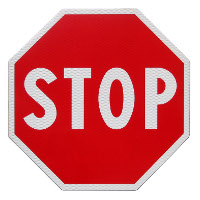by Nancy Bach
1. Don’t wear your shoes in the house. This was a bit of advice we heard at the one and only orientation session we attended on our arrival in Hong Kong before we were thoroughly engaged in our working lives. It makes good sense. When you walk the streets of Hong Kong you’re picking up not only city dirt and grime, but bits of pig entrails that fell to the ground in the Wan Chai wet market and bacteria that came in on chickens from China and then grew and spread in the hot sun. Leave all that outside!
2. Don’t look left. If you’re from the States, you’re used to looking left as you step into a crosswalk. If there’s no car, it’s safe to walk. If you look left in Hong Kong, you’ll end up flatter than Wile E. Coyote when a car swoops in from the right. Remember that people drive on the “wrong side of the road” in Hong Kong, a leftover from British rule. Many crosswalks will remind you to look right, but you have to be diligent. It’s best not to get distracted by conversations or electronic devices. Watch and listen to the crosswalk signals. And be sure to “mind the gap” in the MTR as well.3. Don’t drive tipsy. Driving drunk is never wise or legal. In Hong Kong it’s particularly problematic with crowded, narrow, winding streets. On top of that, if you’re used to driving on the right, your reflex reaction will be to swerve to the right in an emergency or if you’re not quite as alert as you should be. This puts you right into oncoming left-side-driving traffic. “Drink driving” laws are strictly enforced in Hong Kong, with fines up to $25K HK and imprisonment up to three years. You don’t want to be the expat who embarrasses and inconveniences yourself, your family, and your company with an infraction. Taxis are plentiful and cheap. Use them.
4. Don’t use James Clavell’s profanity. We reread Tai-Pan and Noble House before we made the move to HK. My husband adopted one of the bits of slang Clavell scattered throughout the books. He said it once to Raymond, one of our Hong Kong colleagues. Raymond told us it was an affront to his mother’s virtue and he would have to hurt my husband if he used the words again! For that matter, if you’re in a formal or business setting and you want to impress your audience with your developing Chinese skills, it might be best to practice first with a local friend. Getting the tone wrong can be either confusing or insulting. My favorite is the Mandarin my Taiwanese boss taught me: “Yi wan duo shao qian?” can mean either “How much for a bowl (of soup)?” or “How much for a night?” (to a prostitute!)
5. Don’t go outside in a typhoon. Your highrise building is very unlikely to collapse, so it’s safe to be inside. But it’s very dangerous to step outside. Window panes, scaffolding, or other building parts are frequently torn from buildings in heavy wind and rain. Pedestrians below have no protection. A related item is: don’t hike in the rain. Dangerous flashfloods can happen instantly and occur even in the city itself, not just on New Territory hillsides.
6. Don’t spend too much time in the summer sun. Hong Kong summer heat can be oppressive! Take a lesson from some of the older Chinese ladies who use umbrellas to provide personal shade. The air feels 10 degrees cooler under a parasol. Beyond the comfort factor is the issue of dehydration. It’s very easy to sweat off too much water—especially if you’re active—and suffer heatstroke. Carry water with you, drink a lot, replenish electrolytes, seek shade, and rest. Do your daily run before the heat develops or stick with an indoor gym for a few months.
7. Don’t stand close to a curb. This is not an urban myth; it truly happened to one of our Taiwanese colleagues visiting Hong Kong. While he stood on the curb waiting to cross the street, one of the double-decker buses cut the corner short, its tire rose over the curb, and our friend’s toes were crushed. Enough said. Stand away from the curb. There are so many pedestrians rushing and jostling that you could easily be pushed into traffic as well.
8. Don’t pass up an opportunity. Hong Kong and Asia offer endless chances to expand your horizons. Whether it’s eating sea cucumber (gross, in my opinion) to going on a squid fishing trip to biking across Southern China, you’re likely to have offers to do things that you’ll never experience back home. My advice: Go for it!

